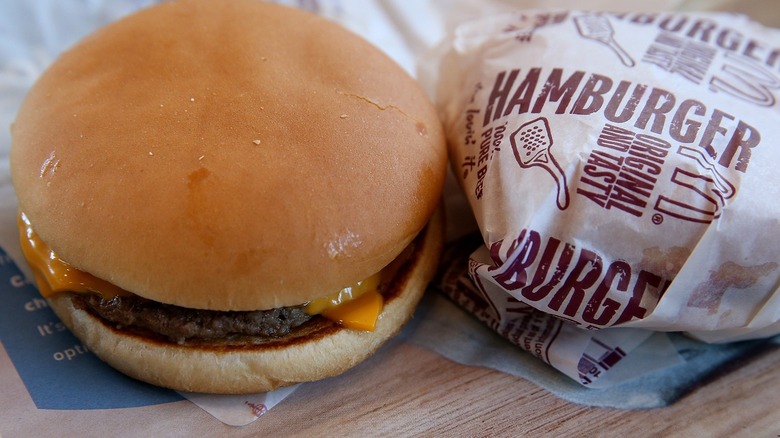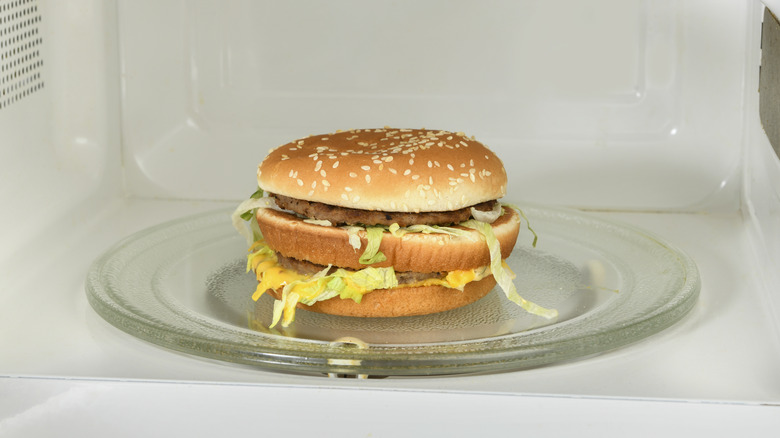Are McDonald's Wrappers Microwave Safe?
Sometimes, you just need to keep an extra McDonald's cheeseburger in the fridge for an emergency late-night snack. While most fast food loses its luster upon reheating, when a delicious McDonald's burger is microwaved in its wrapper, fast food fanatics — like model and social media sensation Chrissy Teigan — swear the burger returns to its original glory.
"I order [McDonald's burgers] in bulk, put them in the fridge, put them in the microwave with the paper on for 35 seconds, and then like a warm soft pillow, they're so, so delicious," Teigan told Spoon University. While this appears to be the preferred method for many Reddit users as well, putting McDonald's wrappers in the microwave may not be totally safe.
Unlike Wendy's burger wrappers, which are lined with metallic foil that could spark a fire when microwaved, McDonald's wrappers are made from paper. And while paper is typically considered microwave-safe, McDonald's wrappers are laden with polyfluoroalkyl substances (PFAS), commonly referred to as "forever chemicals," which can vaporize in the microwave and seep into your food.
Just because you can doesn't mean you should
Designed to make water-repellent fabrics, non-stick pans, and grease-resistant food packaging, PFAS are incorporated into the paper wrappers used by fast food giants like McDonald's, Burger King, and Chick-fil-A. Once considered low-risk, researchers now recognize that the slow-degrading chemical compounds can linger in our blood, air, soil, and water supply for years, silently contributing to a number of health implications. Areas of concern, as noted by the Agency for Toxic Substances and Disease Registry, include possibly lowered immune response and an increased risk of certain cancers.
While McDonald's vowed to remove the toxic chemicals from its packaging by 2025, as it stands, the wrappers are still chock-full of the harmful chemicals. To minimize your exposure, Jamie DeWitt, a professor of pharmacology and toxicology at East Carolina University, told the Washington Post that diners should attempt to limit the amount of time the food remains in its wrapper by transferring whatever isn't immediately eaten to a safe container. Because the volatile compounds can vaporize in the microwave, further infiltrating the food, you should definitely avoid microwaving McDonald's burgers in their wrappers.
Instead, McDonald's burgers reserved for late-night snacking can be wrapped in foil (which is typically PFAS-free) and stored in the fridge. When you're ready to eat, the foil-wrapped burger can go right in the air fryer, producing a truly pillowy-soft burger without the extra PFAS.

